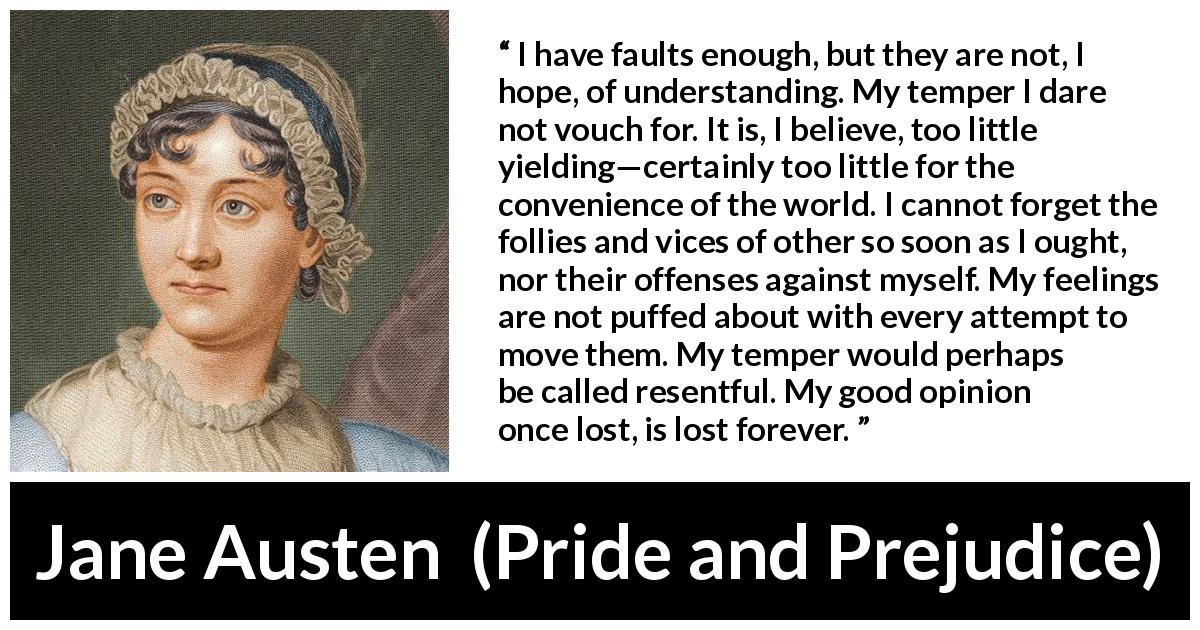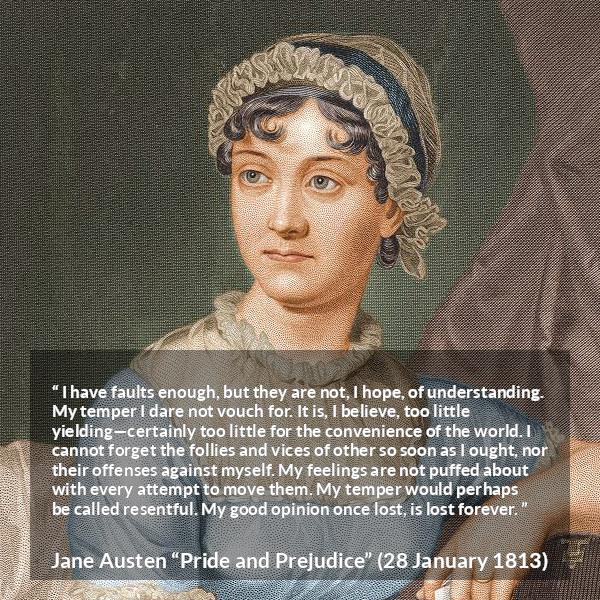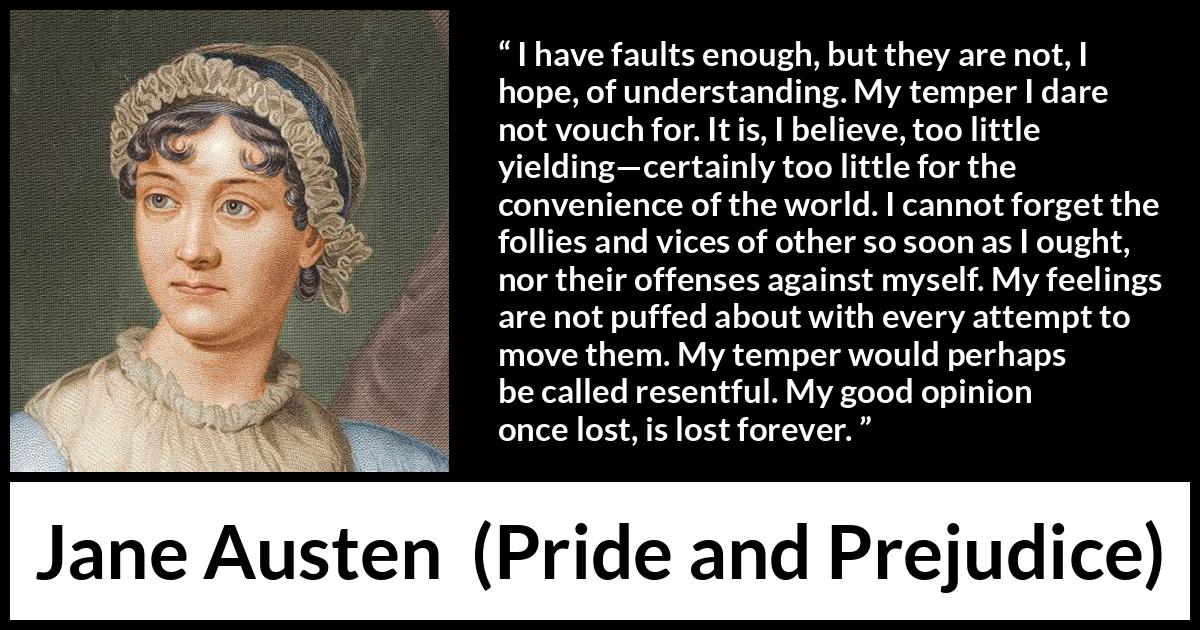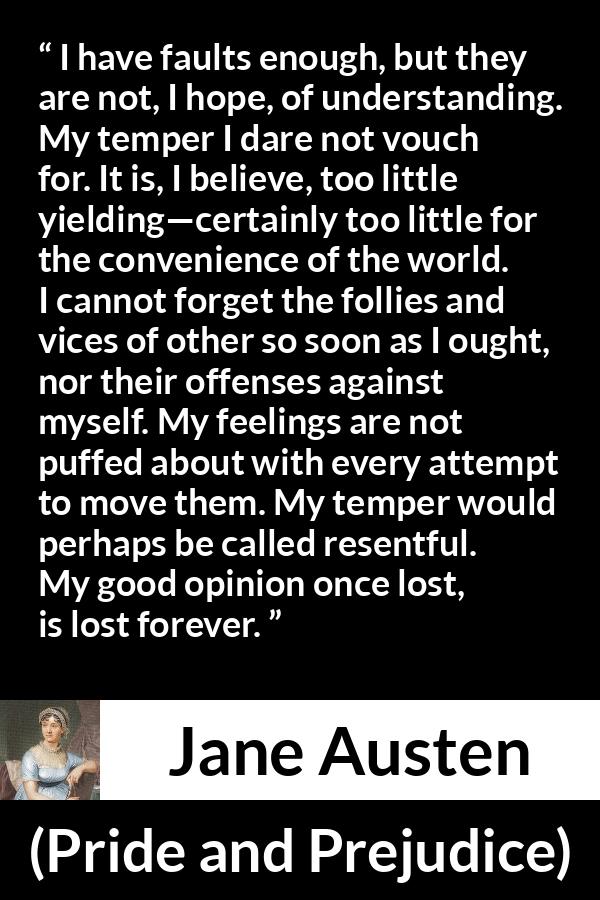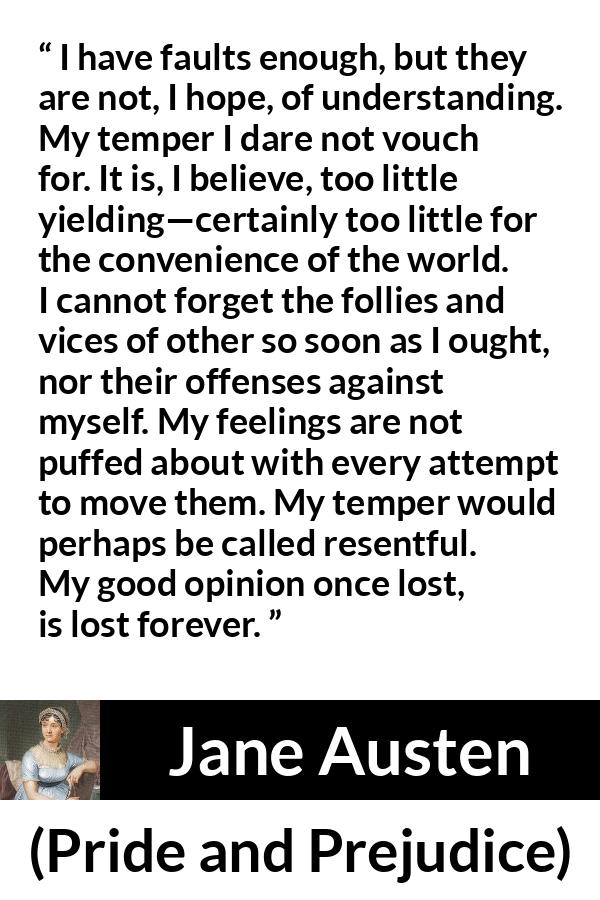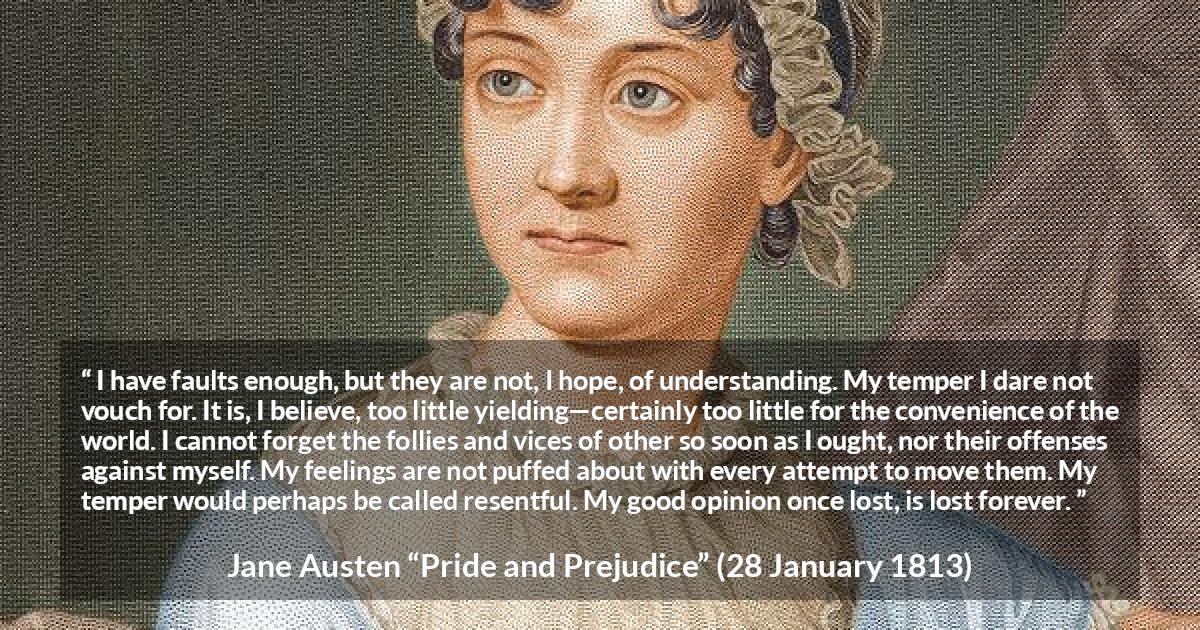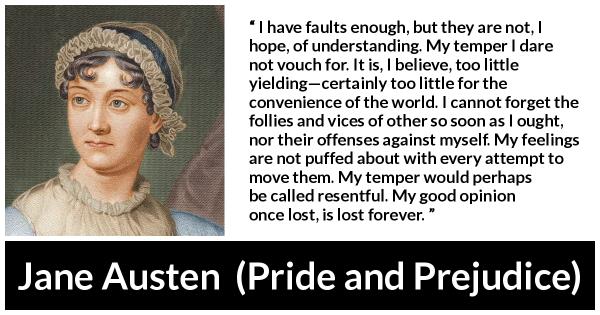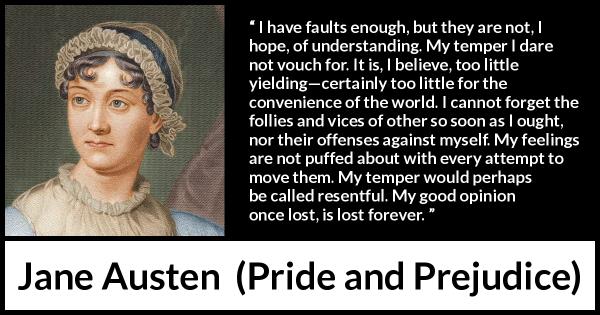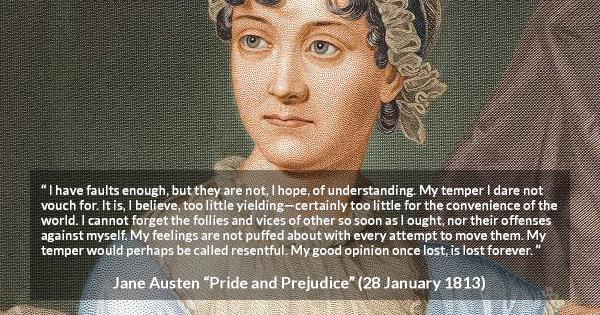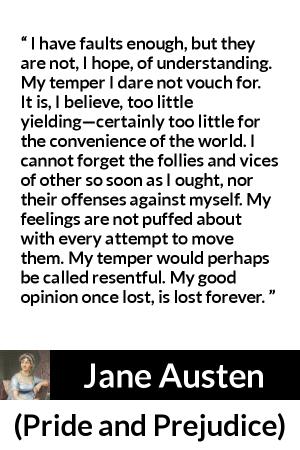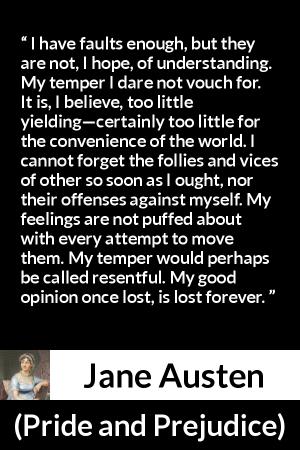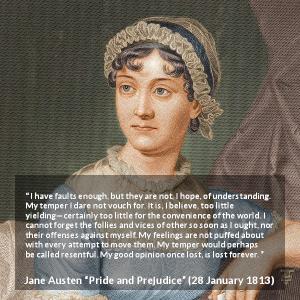“ I have faults enough, but they are not, I hope, of understanding. My temper I dare not vouch for. It is, I believe, too little yielding—certainly too little for the convenience of the world. I cannot forget the follies and vices of other so soon as I ought, nor their offenses against myself. My feelings are not puffed about with every attempt to move them. My temper would perhaps be called resentful. My good opinion once lost, is lost forever. ”
Jane Austen, Pride and Prejudice (28 January 1813). copy citation
| Author | Jane Austen |
|---|---|
| Source | Pride and Prejudice |
| Topic | understanding bitterness character temper |
| Date | 28 January 1813 |
| Language | English |
| Reference | |
| Note | |
| Weblink | http://www.gutenberg.org/files/1342/1342-h/1342-h.htm |
Context
“"Your examination of Mr. Darcy is over, I presume," said Miss Bingley; "and pray what is the result?"
"I am perfectly convinced by it that Mr. Darcy has no defect. He owns it himself without disguise."
"No," said Darcy, "I have made no such pretension. I have faults enough, but they are not, I hope, of understanding. My temper I dare not vouch for. It is, I believe, too little yielding—certainly too little for the convenience of the world. I cannot forget the follies and vices of other so soon as I ought, nor their offenses against myself. My feelings are not puffed about with every attempt to move them. My temper would perhaps be called resentful. My good opinion once lost, is lost forever."
"That is a failing indeed!" cried Elizabeth. "Implacable resentment is a shade in a character. But you have chosen your fault well. I really cannot laugh at it. You are safe from me."
"There is, I believe, in every disposition a tendency to some particular evil—a natural defect, which not even the best education can overcome."” source
"I am perfectly convinced by it that Mr. Darcy has no defect. He owns it himself without disguise."
"No," said Darcy, "I have made no such pretension. I have faults enough, but they are not, I hope, of understanding. My temper I dare not vouch for. It is, I believe, too little yielding—certainly too little for the convenience of the world. I cannot forget the follies and vices of other so soon as I ought, nor their offenses against myself. My feelings are not puffed about with every attempt to move them. My temper would perhaps be called resentful. My good opinion once lost, is lost forever."
"That is a failing indeed!" cried Elizabeth. "Implacable resentment is a shade in a character. But you have chosen your fault well. I really cannot laugh at it. You are safe from me."
"There is, I believe, in every disposition a tendency to some particular evil—a natural defect, which not even the best education can overcome."” source
